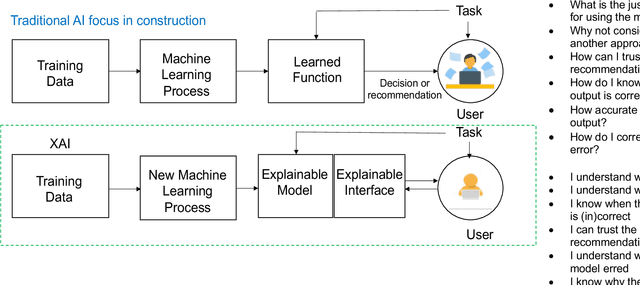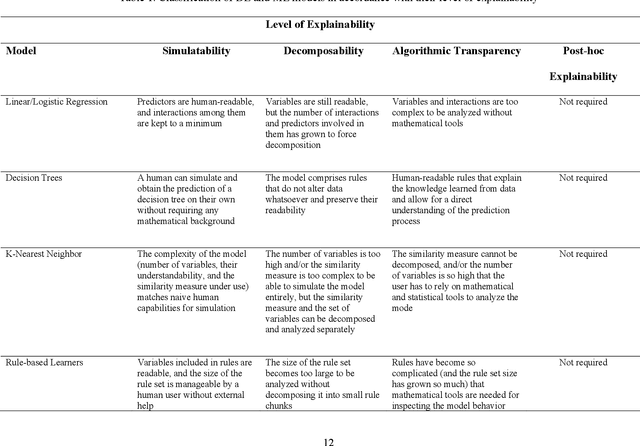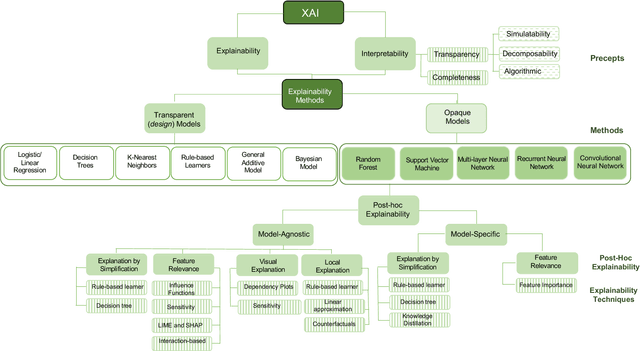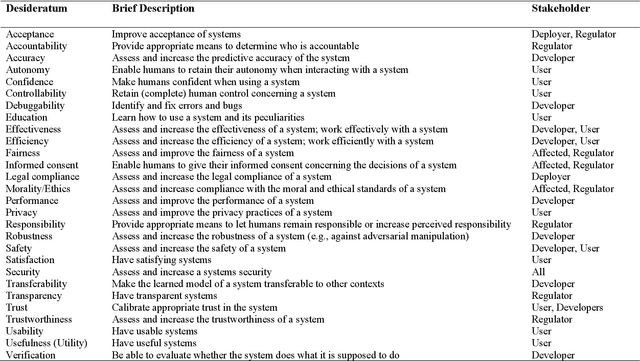Jane Matthews
Integrating Evidence into the Design of XAI and AI-based Decision Support Systems: A Means-End Framework for End-users in Construction
Dec 17, 2024Abstract:A narrative review is used to develop a theoretical evidence-based means-end framework to build an epistemic foundation to uphold explainable artificial intelligence instruments so that the reliability of outcomes generated from decision support systems can be assured and better explained to end-users. The implications of adopting an evidence-based approach to designing decision support systems in construction are discussed with emphasis placed on evaluating the strength, value, and utility of evidence needed to develop meaningful human explanations for end-users. While the developed means-end framework is focused on end-users, stakeholders can also utilize it to create meaningful human explanations. However, they will vary due to their different epistemic goals. Including evidence in the design and development of explainable artificial intelligence and decision support systems will improve decision-making effectiveness, enabling end-users' epistemic goals to be achieved. The proposed means-end framework is developed from a broad spectrum of literature. Thus, it is suggested that it can be used in construction and other engineering domains where there is a need to integrate evidence into the design of explainable artificial intelligence and decision support systems.
Explainable Artificial Intelligence in Construction: The Content, Context, Process, Outcome Evaluation Framework
Nov 12, 2022Abstract:Explainable artificial intelligence is an emerging and evolving concept. Its impact on construction, though yet to be realised, will be profound in the foreseeable future. Still, XAI has received limited attention in construction. As a result, no evaluation frameworks have been propagated to enable construction organisations to understand the what, why, how, and when of XAI. Our paper aims to fill this void by developing a content, context, process, and outcome evaluation framework that can be used to justify the adoption and effective management of XAI. After introducing and describing this novel framework, we discuss its implications for future research. While our novel framework is conceptual, it provides a frame of reference for construction organisations to make headway toward realising XAI business value and benefits.
Explainable Artificial Intelligence: Precepts, Methods, and Opportunities for Research in Construction
Nov 12, 2022



Abstract:Explainable artificial intelligence has received limited attention in construction despite its growing importance in various other industrial sectors. In this paper, we provide a narrative review of XAI to raise awareness about its potential in construction. Our review develops a taxonomy of the XAI literature comprising its precepts and approaches. Opportunities for future XAI research focusing on stakeholder desiderata and data and information fusion are identified and discussed. We hope the opportunities we suggest stimulate new lines of inquiry to help alleviate the scepticism and hesitancy toward AI adoption and integration in construction.
 Add to Chrome
Add to Chrome Add to Firefox
Add to Firefox Add to Edge
Add to Edge